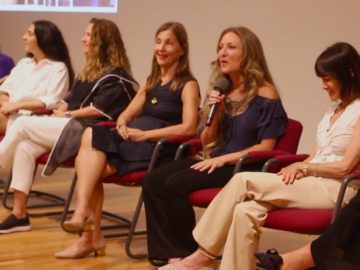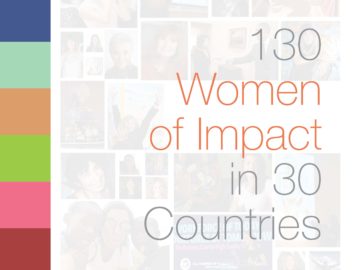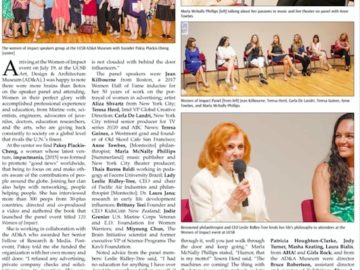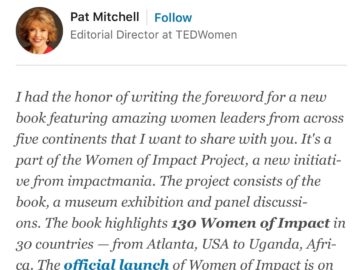Rhacel Parreñas on Women Labor Migration
BY PAKSY PLACKIS-CHENG
Rhacel Salazar Parreñas, Deutsche Bank Member at the Institute for Advanced Study (IAS). IAS is known as Albert Einstein’s place of work until his death in 1955.
Rhacel Parreñas researches women’s labor and migration in economic globalization. Her work has been featured in NPR’s The World, Bloomberg News, The New York Times, Wall Street Journal, De Volkskrant, and The American Prospect. We spoke about her decade-long research on migrant domestic workers and her stint as bar hostess in Tokyo where women flirt for a living.
What are you doing at the Institute for Advanced Study (IAS)?
I feel fortunate to be here this year. I’m here to work on my next book, a comparative study on the labor and migration of Filipino and Indonesian domestic workers in Singapore and the United Arab Emirates.
IAS is a community of scholars who are each working on their respective projects. To be in this kind of space can be very intellectually stimulating, because you hear about people’s projects regularly. You can talk to them about your project. And they ask you interesting questions that could help you further think about what you’re doing.
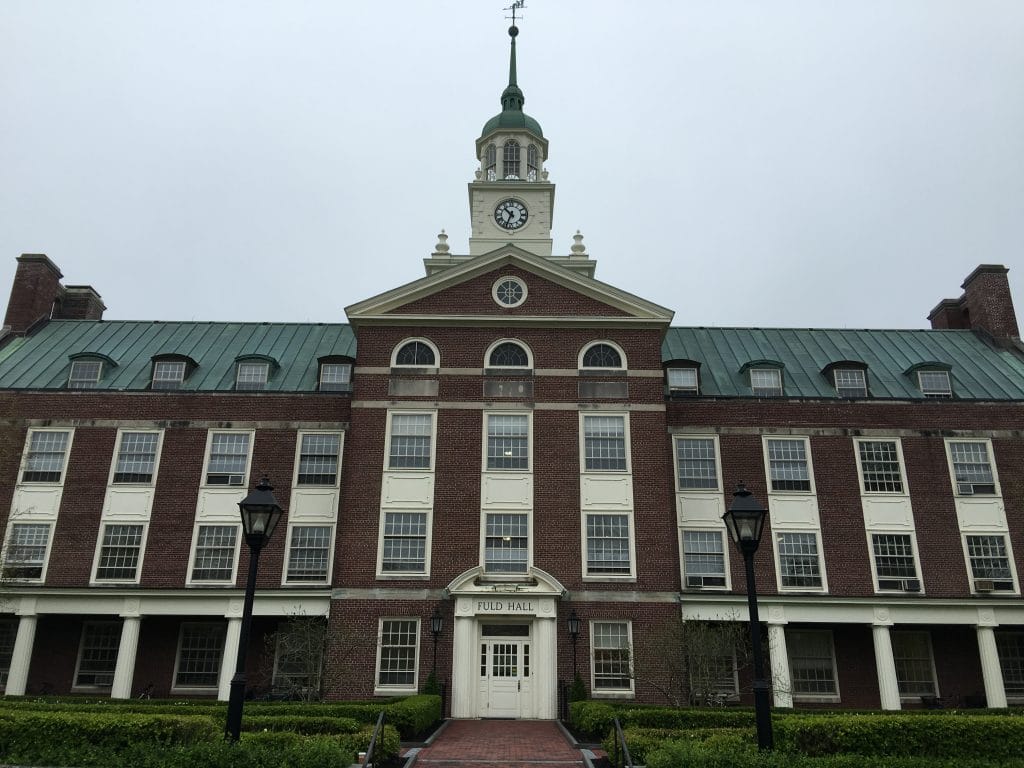
Institute for Advanced Study, Princeton. Photo: impactmania.
It is not to put out collaborative work, right?
No, we don’t collaborate; it’s a very diverse group of scholars here. The Institute for Advanced Study is divided into four schools. There’s a school of mathematics where Einstein was, the school of natural science, the school of historical studies, and then the school of social science.
The newest of these four schools is the school of social science. It was started by anthropologist Clifford Geertz in the early 1970s. There’s a group of faculty who are here permanently. Then every year there are about 20 to 22 members is what they call us.
You engage with each other on a regular basis?
Yes, we have a lunch table and eat together. Scholars like normative theorists. I didn’t know what a normative theorist was before I came here, but it’s a school of thought in philosophy. Scholars who believe that there is an inner good in people. They begin their query from that assumption, which is the opposite of a sociologist. We don’t think that there is an internal being. We think people are socially and externally constructed by the forces around them. Did I learn from the normative theories? Probably not. [Laughs.]
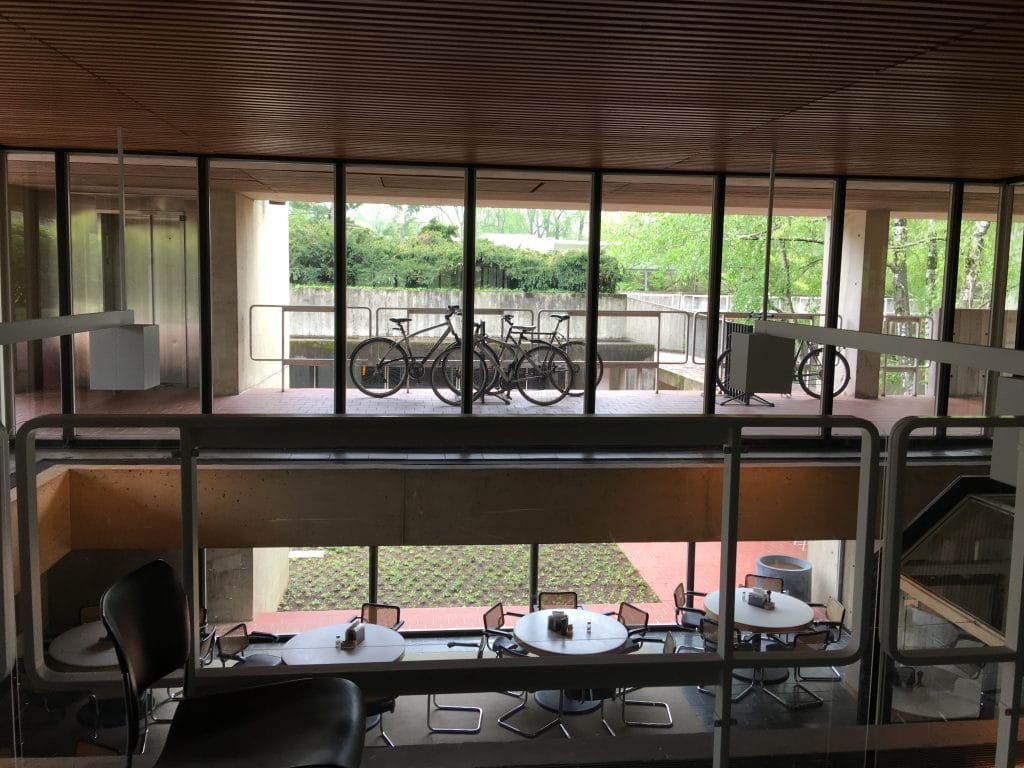
Institute for Advanced Study, Dining Area. Photo: impactmania.
Did you have it out with the normative socialist?
[Laughter.] You get exposed to all these different types of thinkers—people that come from the opposite end of where you are coming from. You’re starting from two different sets of assumptions. It’s like a social experiment, to put all of us together. I must say it’s not really worked for me. [Laughs.]
You haven’t changed? You’ve actually gotten stronger in your beliefs?
Yeah, yeah. Isn’t that funny?
It sounds like an intellectual Big Brother show.
Yeah, it is, actually. Personalities come out, and insecurities come out. I didn’t expect that. I was at the Center for Advanced Study in the Behavioral Sciences in Palo Alto [California]. That’s the West Coast version of IAS. Almost all of us were full professors, so it was like a very different dynamic.
What are some of the misconception of women labor migration and economic globalization.
In the last 10 years, I’ve been looking at the intersection of human trafficking and labor migration. Across the globe there are workers that you can call bound laborers. Their visa status is contingent on their continued employment by a sponsor. This is the norm for migrant contract workers, but for domestic workers it’s aggravated by the live-in requirement of their job.
I picked two countries to look at, Singapore and the United Arab Emirates. In Singapore every time a domestic worker wants to change their employer, they pay a one-month wage penalty. In the United Arab Emirates, similar to other Gulf Cooperation Council countries like Saudi Arabia and Kuwait, they must secure their employer’s permission to change jobs. This is the case even at the end of your contract.
A lot of non-migration specialists have labeled migrant workers’ condition as human trafficking or modern-day slavery. I have a problem with reducing our understanding of their experiences to that. It reduces how we see their experiences to the structures and legal terms that shape them.
A lot of these domestic workers come from very, very impoverished situations—living in huts, no running water and no electricity. They really have two choices: the un-freedom of poverty or the un-freedom of servitude. They think of servitude as a much better deal.
I’m a qualitative sociologist. So I spent time in Singapore, in the UAE, and interviewed employers, domestic workers, government officials, and middlemen brokers. What I found is that the domestic workers’ experiences are so diverse. It’s not like all of them are enslaved. It’s not like all of them are entrapped. It’s not like all of them are working 20 hours a day. You have considerate employers and totally inconsiderate ones.
I am trying to complicate our understanding of un-free labor and trying to move away from human trafficking and modern-day slavery. Because that gives awareness to conditions, so that people who are really in the worst situations are assisted somehow.
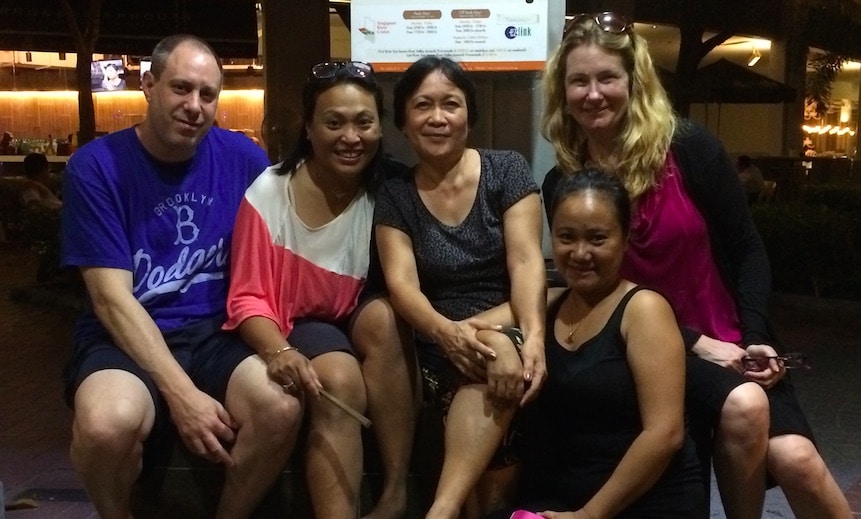
Rhacel Parreñas with her husband (Ben) and research collaborator Rachel Silvey (right) in Singapore meeting two domestic workers from the Philippines. Photo courtesy of Rhacel Parreñas.
Is there an organization that you’ve seen that addresses the migrants’ labor rights?
Saher Shaikh runs this place called Adopt a Camp, in Dubai, United Arab Emirates.
One day she was grocery shopping and a Pakistani worker in front of her had not enough money to pay for a bread roll and yogurt. She was really moved by this and decided to look into the situation of construction workers. Since then, she has singlehandedly raised awareness about the living conditions of construction workers in the UAE.
There is no civil society in the UAE. You can’t have a nonprofit organization there. It’s not allowed. She can do this because she’s a one-person show. She just does it. She estimates that she has helped 50,000 construction workers since she started. She lobbies to make sure they have air conditioning, that they have beds, that they have access to dentists, doctors, and optometrists.
For domestic workers, there’s really nothing. There’s an anonymous group based in Qatar called migrantrights.org. It’s just basically a website. It is a secret who runs it.
What was a surprising thing that you learned in doing all this work?
The circumstances of the workers’ lives. A lot of my interviewees are from the Muslim autonomous region of Mindanao in the Philippines.
A lot of them had an arranged marriage at 13, and their first child at 14. A lot of them grew up in huts. For me, this level of poverty, or these very non-Western circumstances, are things I have to take into account when I think about what is good for these women, right?
A lot of people who want to save them from their awful job in the UAE don’t often take into account where they came from. And how where they came from is really far worse. It’s hard to imagine.
Another thing that I learned was that employers—I want to call them moral narcissists—don’t want to be bad people. It’s interesting to ask employers, “You can have God-like power over this person. How do you feel about that?”
The sad thing is that while everyone’s well intentioned, these domestic workers are powerless. What happens is if the employer is in a bad mood? They can easily take it out on the domestics. What I found is the abuse is not continuous.
For previous research, you served as a hostess in Japan. What did you learn from a nine-months stint in bars?
My nine-months stint! I worked as a hostess in a working-class neighborhood of Tokyo. In literature, it’s those kinds of clubs where people are forced into prostitution. That was not true.
Not at all, or were there some clubs, but you didn’t end up in one that had forced prostitution?
No, no, no. It didn’t happen at all. What I learned was that the hostesses flirt for a living. It’s commercial flirtation. What I learned was that I was really bad at it. I was so bad at it!
What they would do is to go outside and run after customers. “Hey, go to the Philippine club!” It was the equivalent [of] 30 U.S. dollars for 1.5 hours, and you get all you can drink. It’s cheap Korean liquor.
Why these issues?
I’ve always been interested in women slavery migration, because when we first immigrated here to the U.S. in 1983, we basically had to give up everything. There were like six kids in this two-bedroom apartment. When other relatives came from the Philippines, they would all stay in the apartment.
At some point, there would be 15 people in this two-bedroom apartment. I think what was interesting for me was that my parents were highly educated.
To survive in our first few years, my mother had to work as a hotel housekeeper. I was always curious about how that felt for her to live a very high-status life in the Philippines and to suddenly just lose all that status. Since then I’ve always had this curiosity about the experience of women labor migrants and these contradictions that they undergo.
Did your mother ever speak of it?
No, not really. It was interesting, but I was always curious about it because then she had sisters — my aunts — they were all domestic workers in New York. They grew up quite wealthy and highly educated. It was curious that they were nannies.
I was always puzzled by that — how would that feel? They never openly talked about it. My first book was about domestic workers in Rome and Los Angeles; it was one of the first questions I asked women: What was it like to be college-educated and do domestic work?
A lot of them brought up in our interviews how it was really painful for them to suddenly lose their status and the perception had people had of them. I got a feel of it when I was working as a hostess, because I was a college professor with tenure. I was doing this very low-class and low-status job. Then, you are treated accordingly by the customers, who were so disrespectful, so rude. When a customer came in, you would greet the customer. If you were assigned to be the first server of this customer, you have to kneel and bow, and then wash their hand with a hot cloth.
Kneel and bow?
Yes, and then you have to sit in this stool to make sure you’re lower than him. He’s in his normal seat and you pour him his drink. When you toast, your glass rim has to be lower than his glass rim, to always express your deference.
I’m thinking, Okay, I can remove myself from it because it’s temporary. But then sometimes these men are really rude; they would demean you. One time I hit a tipping point with a super rude guy. Before I sat on my little step stool, he turns around and moons me. I was so irritated that I went to the back and got my business card that said I was a visiting professor at Ochanomizu University. One of the premier universities in Japan. He was shocked. He said, “What are you doing here! Why are you with these losers whose life is not gonna amount to anything?” It was interesting, because then you got a sense of what these customers actually thought of the women that were serving them.
Give me a word that describes your journey so far.
I’ve been fortunate. I was going to say exciting, but no, I have been very fortunate. I feel the contradiction of other people’s misery is my good fortune. Filipino workers are all over the globe and I study Filipino labor migration. I’ve had the opportunity and the reason to go to all these countries and study their experiences.
Before I started doing my work, Filipino labor migration was seen as illegitimate. It was not seen as important in the U.S. When I first did my dissertation on Filipino domestics in Rome and L.A., I was trying to publish it into a book. A few of the presses said, “Your focus is too narrow, we’re not interested in it.” If you study migration in the U.S., you pretty much study Mexicans or Dominicans. Filipinos were not there in the picture. I’ve been fortunate that much has changed since I started.
What’s next?
One thing I want to study are mail-order brides in Australia, 70 – 75 percent of Filipinos in Australia are family migrants. They’re highly stigmatized. I’m interested in looking at their marriages. Their age gaps are usually wider. Their weight gaps are also wider!
I was a visiting professor in Australia for a month. Toward the end of the trip I met some of these brides. I asked one of them, “Do you love your husband?” The girl said, “Of course not, but we have a commitment.” It’s a contract. She was 30-something and she married a 70-year-old. Her commitment was that she’s going to stay with him until he died.
The women who usually get into these marriages are usually single mothers who no one (back home) wants to marry anymore. Or they’re over 28 years old. In certain countries, people call them the unmarriageable.
It is almost as if they see it as a job. This is also work, right?
Yeah, it’s their job to take care of and love the person.
Rhacel Salazar Parreñas is a Professor of Sociology and Gender Studies at the University of Southern California (USC). In July 2016, she will be finishing up her year as the Deutsche Bank Member at the Institute for Advanced Study. Parreñas is known for her work on women’s labor and migration in economic globalization. She has shared her work with universities as well as government and nongovernmental institutions and research think tanks throughout the United States, Europe, and Asia, including the United Nations and the U.S. Civil Rights Commission. Parreñas’s dissertation was made into a documentary, The Chain of Love (2000), by the public broadcasting station VPRO-TV in the Netherlands.


